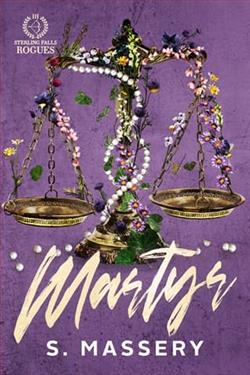Page 17 of Last Letter Home
‘You couldn’t help that, given the situation.’
‘No. Once we reached London it felt important to be in before Christmas.’
Sarah half listened to this conversation and wondered, not for the first time, where the poor Watsons with their young children would be spending the festive season. Really, their mother did get such ideas in her head that simply couldn’t be shifted. Sarah would have readily endured Christmas at Aunt Susan’s in Wimbledon, though she had to admit that her mother and Colonel Bailey’s spinster sister had never been close.
Her attention was caught by the sight of an old man in a cloak digging a sheep from a snowdrift. His dog, a streak of black, was making little rushes to gather the rest of the flock. Clouds hung low, swollen with snow. It was like a Christmas-card scene. How many years had she longed for a traditional English Christmas with her family, instead of being in India or with Diane at Aunt Susan’s, but now it was here it would be a sad one. At least they would be dressed for it, thanks to their recent raid on Aquascutum’s.
‘Westbury Hall on the left,’ Ivor Richards announced, waving a gloved hand as they passed a high-arched gateway with a statue of a great dog on top. Through it, the briefest glimpse of a snowy drive up a slope to a house topped by Tudor chimneys and then it was gone.
A minute or two further on, the car slid to a halt next to a long flint stone wall. Ivor climbed out, plodded round and opened the door for Mrs Bailey, then set about unloading suitcases from the boot.
The women emerged more slowly and stood together at the low gate, gazing at the square lines of the Victorian detached house that would be their new home.
‘Looks pretty,’ Diane tried, uncertainly. They both glanced at their mother for a reaction, but she said nothing. Instead she swung open the gate and, with Sarah holding her arm, started carefully up the path, which, though swept clear of snow, was still icy. Diane followed, complaining about the cold.
The holly Ivor had mentioned marred the frontage, but the house seemed larger than Sarah had expected. Two storeys, she saw, and gabled windows in the roof suggested attics. It lay amid a generous plot of garden bordered by great sheltering trees and studded with the white-shrouded hulks of bushes. What treasures the snow concealed, she must wait for the thaw to discover. She shivered in a sharp gust of wind and held the precious box closer.
As they neared the mare’s nest of holly that blocked their path, the brisk snap of shears could be heard and the bright berried branches shuddered.
Mrs Bailey spoke and the snapping ceased.
‘Sorry, ladies,’ a soft male voice cried. ‘Wait a moment, please. I’ll make you a way past.’ A cloth-capped, clean-shaven face became visible above the branches, then when his bulky form appeared, Sarah gained an impression of bright eyes in an intelligent face.
‘What a job,’ Sarah said politely as he steered them safely round the obstacle.
The man smiled as he returned to his task. ‘It was much worse an hour ago, I assure you. I’ll be finished soon.’
Sarah asked, ‘Mummy, shouldn’t we ask him to save some branches for Christmas?’ and when Mrs Bailey agreed, she asked the young man, ‘Would you, please? The berries are splendid.’
‘Of course. I was going to propose it anyway. I will leave some in the conservatory, if you like.’ His smile made his grey-blue eyes twinkle. They were almond-shaped, in a pale face that contrasted sharply with what she could see of his dark hair. He spoke perfect English, but pronounced the words softly, almost tenderly.
‘I say, Hartmann.’ Ivor’s rough tones ripped the air. ‘Take these in, will you.’ The young gardener flinched at the rudeness, but he propped up his shears without complaint and went to lug the cases.
A handsome bosomy woman in a country tweed suit appeared in the porch. ‘Belinda, darling, you’re here!’ she squealed, spreading her arms out to Mrs Bailey in welcome.
‘Oh, Margo!’ It had been many months since Sarah had last seen her mother spark into life. She watched, unexpectedly moved, as Mrs Bailey rushed into the other woman’s embrace. The two friends clung to one another, Belinda Bailey’s thin, powdered cheek pressed to Margo Richards’ plump, sun-browned one. Belinda’s eyes squeezed shut, her face crumpled with grief. Aunt Margo, Ivor’s mother, was someone Sarah barely remembered, but she knew the two wives had formed as close a bond as their husbands, sustained by infrequent meetings and the exchange of letters over the years. Seeing them together now, Sarah at last understood why her mother wanted to retreat here to the deep Norfolk countryside rather than rent a house in London. After the strains of her marriage and the sudden disorientation of widowhood, Belinda Bailey needed a place of safety.
‘I told you the place wouldn’t be ready, darling,’ Aunt Margo scolded as they gazed round inside, dismayed to see the wretched state in which their tenants had left the house. ‘I wish you’d agreed to stay with us.’
‘Perhaps we should have done,’ Mrs Bailey sighed, ‘but we’re here now, so we’ll have to make the best of it.’ Oh, her mother’s obstinacy.
It had been Major Richards who, when the girls had returned to India after their schooling, had telegraphed Colonel Bailey to say that Flint Cottage had come up for sale and who, under Colonel Bailey’s subsequent instructions, had organized its purchase. Colonel and Mrs Bailey wanted somewhere in England to retire to eventually, and in the meantime they would let it out. Furniture, curtains and carpets belonging to the previous owner had been included in the sale, but nobody had realized before the Watsons’ departure how dingy the decoration had been.
Sarah saw that every room bore the marks of a vigorous family of children and animals. The Watsons – Mr Watson a writer of detective novels – had had four boys as well as several dogs. The wallpaper was marked by grubby hands and the wheels of toy cars, and most of the doors showed evidence of scrabbling claws. One of the sofas in the drawing room had collapsed on one side and splashes on the wooden floor near the writing desk suggested that a bottle of Royal Blue ink had been dropped on it from a height.
All these things Aunt Margo pointed out as they toured the house, Ivor having been despatched to buy some urgent supplies. Their mother appeared annoyed rather than cast down, however, but Diane’s expression was dismal. ‘I didn’t think it would be as bad as this,’ she whispered, shocked by the mould on the bathroom ceiling, but Sarah wasn’t listening. She was already beginning to see the house’s possibilities.
She liked the large and light-filled rooms. The walls were thick enough to imagine it snug once they got fires burning in the grates. She left the others admiring a view of the church from a bedroom window and returned downstairs to explore on her own. One door off the hall had revealed a gloomy formal dining room. The kitchen and a good-sized scullery she had found more cheerful, but the room she had liked best was a sitting room at the back, which she went into now. Its windows looked out onto a snow-covered terrace with a lawn beyond. Something else, though, had roused her curiosity: through a French door a conservatory had been built onto the side of the house.
Sarah listened to the voices and footsteps overhead, before trying the handle. The door was locked, but a heavy iron key on a nearby shelf fitted and turned easily enough. The door swung away and she stepped down into the grey light of a stoutly built wooden garden room with a snow-covered glass roof and windows all round. A grapevine spread like a delta up the wall of the house, its branches clutching the beams overhead. Doors either end led into the garden. Despite its cloak of snow, or perhaps because of it, the room felt less icy than she’d expected. Yes, she thought, this might be the place. For the moment, anyway.
She slipped back into the house and from the hall collected her shoebox and returned with it to the conservatory, where she set it on a potting shelf and addressed her attention to the string, unpicking the knots impatiently. Then she eased open the lid and lifted the layer of straw beneath. Thank heavens. The row of tiny plants inside were undamaged in their pots and, when she prodded with a finger, the earth felt damp still from this morning’s drenching. She bent and sniffed the exotic smell: India in a box. She’d guarded these cuttings safely on their long voyage across the sea. They were flowers from their garden in Kashmir, her father’s favourites. She had no idea if they would survive here in English earth, but she was determined to try. She transferred the pots to a narrow stone trough under the vine and was still considering whether this would be the best place for them, when Diane’s heart-shaped face appeared around the door, its expression impatient.
‘There you are, Saire. Come and choose a bedroom. It’s the one with the washbasin I like, but I shan’t care if you want it.’
Diane’s tone indicated that she would very much care and Sarah, knowing Diane would have to have her way but not really minding, rose to follow her, taking a lingering look back at the long-suffering plants in their new home.
As she prepared for bed that night, in the bedroom with its view of the church tower through the trees, she saw that the snow was coming down once more in thick, tumbling flakes. It fell on and off for days, burying the sleeping garden, overlaying the newly cleared path. It covered the village of Westbury, its old stone church, the mediaeval bridge over the frozen stream. It coated the handsome statue of the Great Dane on the gateway of Westbury Hall and piped the chimneys and crenellations of the manor house itself. Across the whole of Norfolk it fell, on towers and steeples, on fields and woods and the mysterious Broads, on desolate marshes and the icy North Sea. Under the snow everything lay silent, holding its breath, perhaps, for what was to come.















